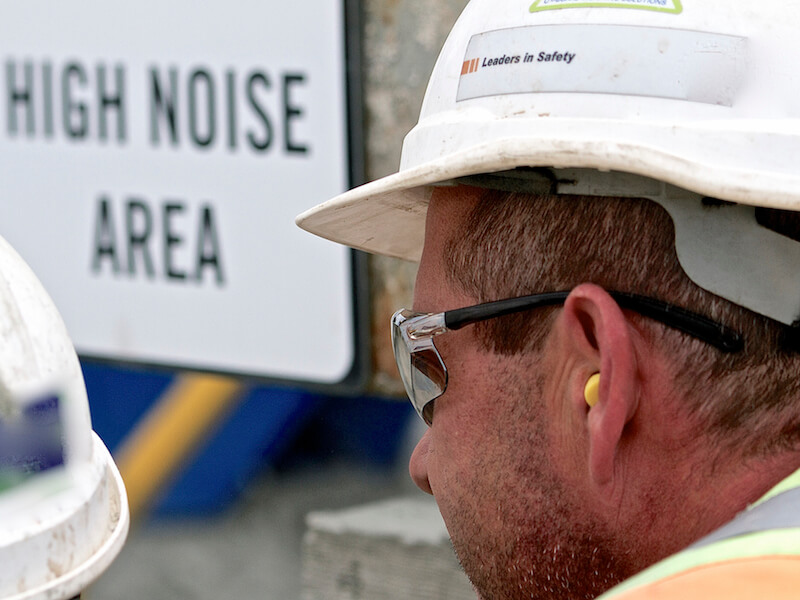
Your hearing can be damaged by a noisy workplace and it can also affect your concentration. The health of your hearing can be negatively impacted by even moderate levels of noise if you’re exposed to it for numerous hours each day. That’s why it’s really smart to start asking questions like, “what level of hearing protection should I use”?
Most of us probably didn’t even realize there were multiple levels of hearing protection. But it seems logical when you stop to think about it. A jet engine mechanic will require a different level of protection than a truck driver.
Levels of Hearing Damage
The fact that 85dB of sound can begin to damage your ears is a basic rule of thumb. We aren’t really used to considering sound in decibels (even though that’s how we calculate sound – it’s just not a number we’re used to putting into context).
When you’re sitting in your car in city traffic, that’s around 85 decibels. No biggie, right? Actually, it’s pretty significant. At least, it’s a big deal after several hours. Because it’s not just the volume of the noise that you need to pay attention to, it’s how long you’re exposed.
Common Danger Zones
If you’re exposed to 85 dB of noise for eight hours every day or more, you should probably consider using ear protection. But there are some other important thresholds to take note of. If you’re exposed to:
- 90 dB (e.g., lawnmower): Anything above four hours will be damaging to your hearing.
- 100 dB (e.g., power tools): Your hearing will be damaged when exposed to this level of noise for 1 hour a day.
- 110 dB (e.g., leaf blower): Damage to your hearing takes place after 15 minutes of exposure to this noise level.
- 120 dB (e.g., rock concert): If your exposed to this level of noise for any length of time, your hearing can be damaged.
- 140 dB (e.g., jet engine): This amount of noise will cause immediate damage and probably pain to your ears.
You’ll want the hearing protection you choose to be sufficient to bring the volume below that 85 dB level, especially if you’re exposed to those noises for any duration.
Make Sure Your Hearing Protection Fits Comfortably
NRR, which is an acronym for Noise Reduction Rate, is a scale used to measure the effectiveness of hearing protection. Outside sound will be progressively quieter the higher the NRR.
Most workplaces will have recommendations as to what level of protection will keep your hearing safe because it’s important to have the right protection.
Comfort is also an important component to take into consideration. As it happens, comfort is incredibly important to keeping your ears healthy. This is because you’re not as likely to actually wear your hearing protection if it’s uncomfortable.
Hearing Protection Options
There Are Basically Three Options:
- Earplugs that sit within the ear canal
- Earplugs that sit just outside of the ear canal.
- Earmuffs.
There are benefits and drawbacks to each type of protection, but personal preference is frequently the deciding factor. For some individuals, earplugs are uncomfortable, so earmuffs may be a better choice. Other people may value the leave-them-in-and-forget-them approach of earplugs (obviously, you won’t want to forget them for too long… you should take them out at the end of your workday. And clean them).
Consistently Use Protection That Works Best For You
Comfort is essential because any lapse in your hearing protection can lead to damage. If you remove your earmuffs for ten minutes because they’re heavy and scratchy, your ears can suffer over the long run. This is why hearing protection that you can leave in for the full workday is the best option.
Investing in the degree of hearing protection you need can help keep your ears healthy and happy.
References
https://www.cdc.gov/nceh/hearing_loss/what_noises_cause_hearing_loss.html